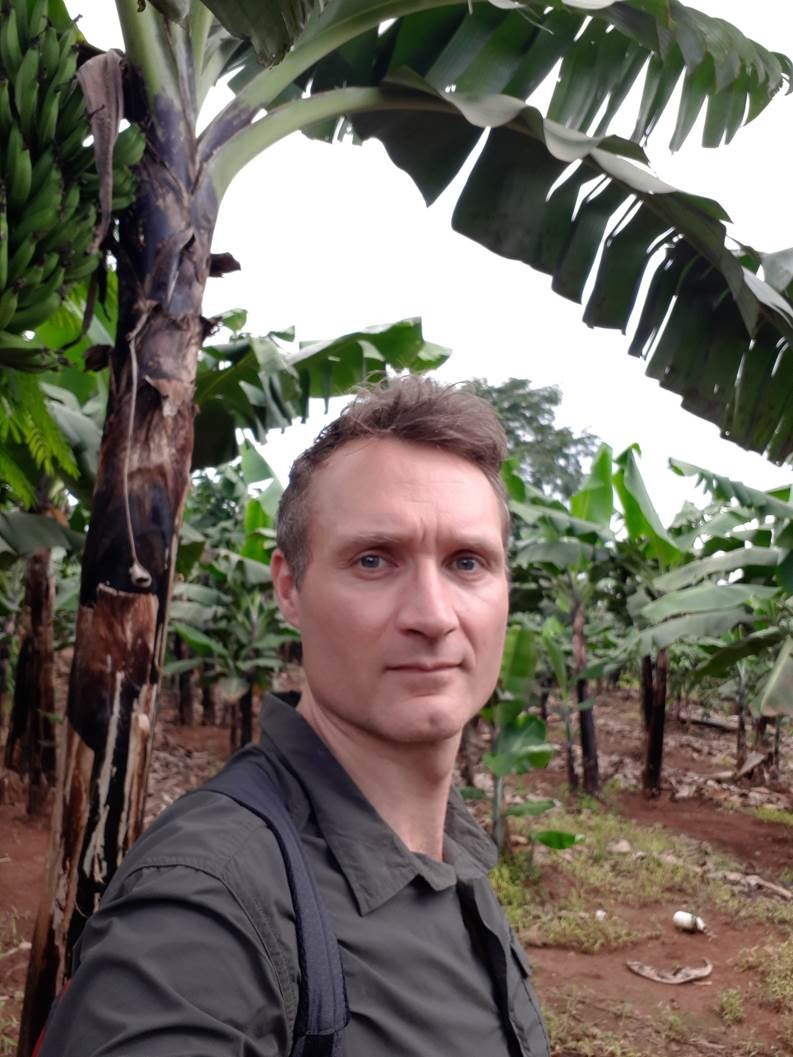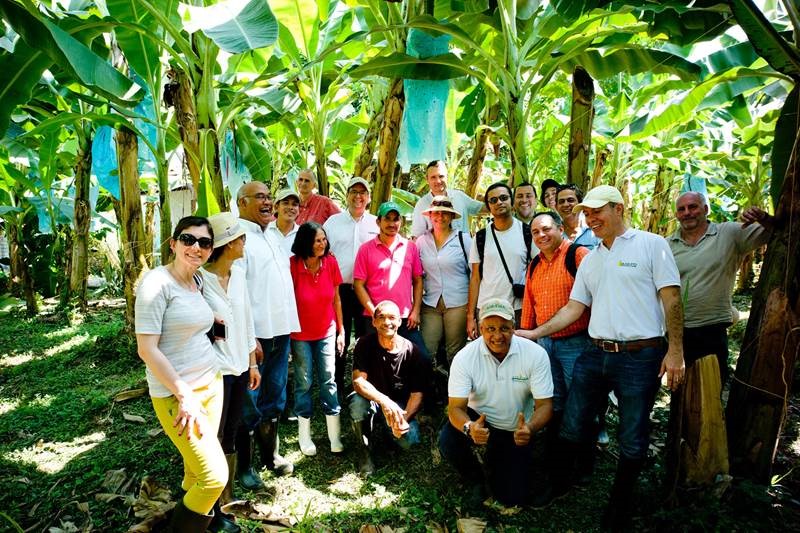
Bananas, the UK’s favourite fruit, appear at first glance to be among our most reliable and resilient fresh produce. They are stocked in every supermarket on every day of the year, and their price seldom varies by more than a few pence per kilo. But beneath this apparently smooth and steady supply lies a complex international network affected by extreme weather, plant disease, social and political shifts, and the looming threat of climate change.
The reliability of banana availability to UK consumers, despite a plethora of diverse threats, and the fact that only one variety of banana is internationally traded (the Cavendish), makes the banana supply chain a fascinating system to study in the context of the resilience of food systems. Will producers and importers continue to adapt and respond to stresses posed by the likes of the dreaded Fusarium Wilt (also known as Panama Disease), or will the combined pressures of climate extremes, disease, and economic realities eventually break the system and require us to revolutionize our relationship with bananas?
The aim of the GFS-funded BananEx project (officially known as Securing the Future of the UK’s Favourite Fruit) is to analyse these various stresses, identify strengths and weaknesses in the system, and consider how the resilience of the banana supply chain might be strengthened in future. To some, the extreme monoculture and intensive production methods of the Cavendish banana export market signifies an inherently unstable system that must be radically altered and diversified for long-term environmental, social and economic sustainability. To others, the economic upheaval caused by dramatic industry shifts is unthinkable, and technological advances must be applied to ensure the production and supply of Cavendish bananas to consumers in Europe, North America and China continues undisturbed. As Tropical Race 4 of Fusarium Wilt continues its westward march towards the New World, hurricanes batter the Caribbean, and economies develop, the banana supply chain approaches a crossroads: will the status quo be maintained, or will a new route be taken?
BananEx is investigating the influence of climate change and extreme weather events on production. The GFS programme published a report on the impact of extreme weather on global food system resilience, highlighting its vulnerability to production shocks caused by extreme weather. Indeed, the effects of extreme weather have been felt strongly in recent months, with simultaneous impacts of hurricanes and cold weather in several countries across Latin America and the Caribbean. During a recent BananEx meeting in London, with representatives of the major UK importers and retailers, we learned under normal circumstances the geographical range of suppliers ensures extreme weather events which reduce availability from one country can be compensated by production in others. The diverse range of sources provides redundancy in the system, increasing resilience to climate shocks.

But the past year has been different. Hurricanes Irma and Maria devastated production in the Caribbean, while bad weather affected production in Central America. Importers and retailers have struggled to meet demand, and have been forced to put under-ripened green bananas on supermarket shelves. The optimum colour for bananas is yellow with a hint of green. Too green and sales fall. Take a look at the bananas in your supermarket – the greener they are, the more stress the supply chain is under.
BananEx is investigating the probabilities that such multiple weather stresses will occur, and whether climate change will increase or decrease their frequency. To answer this question we need to model the relationship between banana production levels and weather, and to study past weather observations and future projections. This task is being undertaken by Dr Varun Varma of University of Exeter, a Research Fellow in the BananEx project. Unlike other major crops like wheat, rice and maize, whose climate relations have been intensively studied, bananas have received relatively little scientific attention.
Dr Varma is gathering available data on the responses of individual banana plants to temperature and moisture to develop a growth model that can then be scaled up to plantation level. While there are several pieces of information missing, this approach has revealed some little-known but potentially important processes. For example, shredding of banana leaves by wind and heavy rain can dramatically reduce their ability to photosynthesize – or, convert sunshine to banana fruit. This effect has important implications for the influence of storms and hurricanes on production, as it is not only blow-down of whole plants or flooding of their root systems that can cause yield losses. Secondly, the ‘top-down’ approach, which involves gathering all available information on productivity of bananas over time, at as fine a spatial scale as possible (for example, from the 315 Districts in India that grow bananas), and linking these data to local weather over the years. This analysis has revealed that several important banana-growing regions around the world have benefitted, and will likely continue to benefit, from global warming, as they are currently cooler than the optimum temperature for banana production. While we cannot reveal the findings in detail yet, prior to peer review, and I will be presenting some of these data in his keynote address to the Acorbat 2018 conference in May. BananEx is also studying the impacts of extreme weather events such as hurricanes, focussing on the Dominican Republic which produces most of the organic bananas sold in the UK. With partners in the Dominican Republic, we are using satellite imagery to quantify the damage done to plantations, and how quickly production can recover following these devastating events.
About Dan Bebber
Dr Dan Bebber is the Director of the University of Exeter’s MSc in Food Security and Sustainable Agriculture. Before this he was Head of Climate Change Research at Earthwatch, based in Oxford. Dan is particularly interested in abiotic and biotic threats to tropical crops, as these receive far less research attention than major grains like rice, wheat and maize, but form an important component of the diets and economies of less-developed countries.
About the BananEx project
BananEx is an interdisciplinary research programme investigating the resilience of banana production and supply from biological, ecological, economic, and social perspectives, working with multiple stakeholders to safeguard the supply of this most important of fruits.



